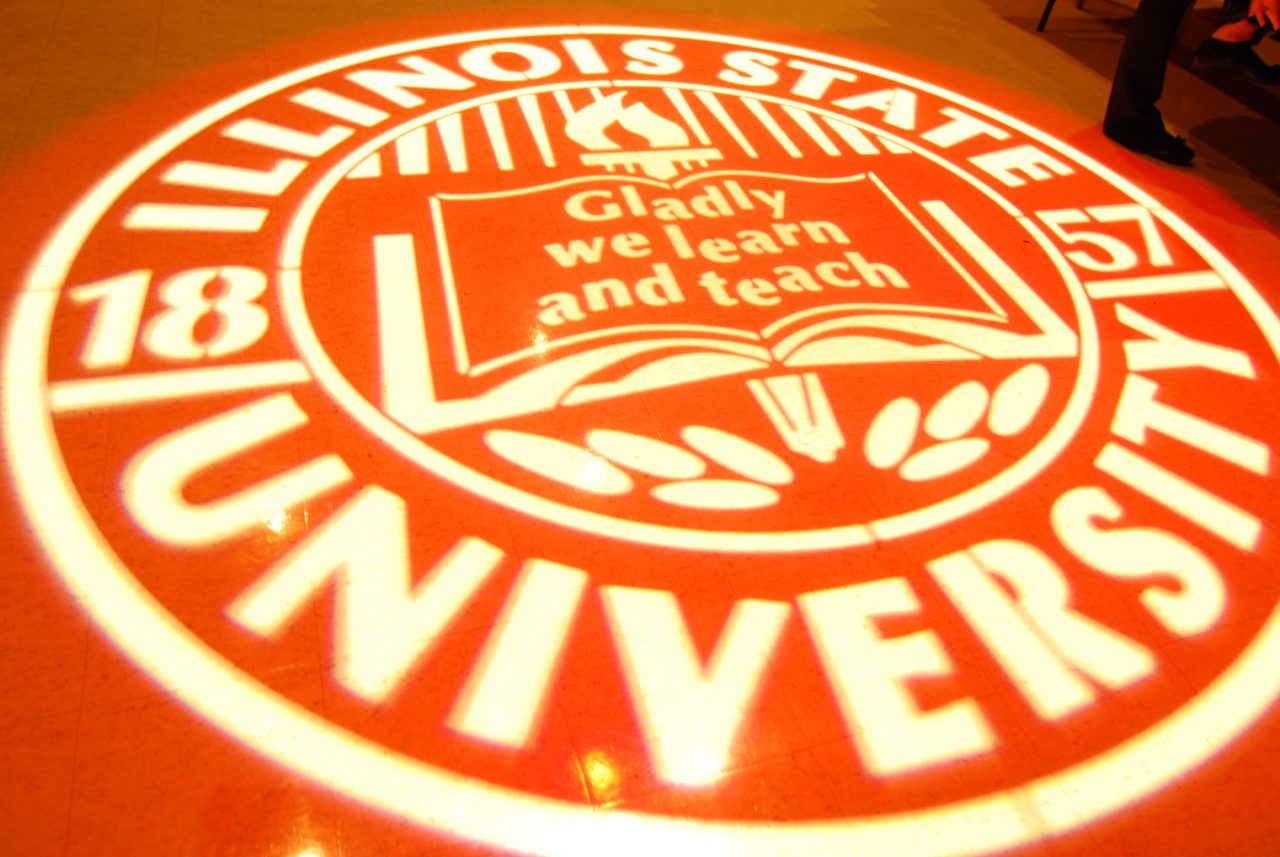Admissions Director Molly Arnold said federal programs specifically designed for low-income, first-generation college students can often appear scary and convoluted to high school students and their families. That’s why her office has developed a multi-step process to help those students enroll at Illinois State University.
“You Can Do ISU” is an Admissions initiative to bring students from the Chicago, St. Louis and Peoria areas to campus and tell and show them what they need to do to get into college. The first year, some 50 students arrived at Illinois State for the program, and this year, the third year, that number grew to 600 students.
“The program is pretty powerful, and we have received rave reviews from the students, their families and the groups that help low-income students go to college,” Arnold said. “We take the financial aid process and explain it on a very basic level and walk the students through the areas of grants, tuition, loans and work study. Then we have a campus tour. We talk to juniors about the college selection process, and how this is the year they need to do their best to kick it into high gear to get the grades they need to enroll. We talk to the seniors about the college selection process and how to apply to Illinois State.”
This year’s “You Can Do ISU” featured alumna Julie Robinson-Jones (pictured above), an attorney who came from an intercity high school to attend Illinois State, talking about how the University changed her life. Arnold said this year members from the black sororities and fraternities provided entertainment and some underrepresented students served on a student panel, talking about their experiences at Illinois State, what it is like being on a predominately white campus and many of the day-to-day issues of college life.
“’You Can Do ISU’ students are often from an all-black or all-Hispanic school,” Arnold said. “Our current students get real about their experiences here, tell the prospective students to get busy in the high school classroom and also tell them their college years will be the best time of their life.”
Arnold said the national average ACT score for underrepresented groups is generally lower than the typical admitting ACT score. So the Admissions office looks at high performing students in the classroom, conducting an intensive review of the courses they have taken. The staff also does a second review of any student who is the first to go to college, or who doesn’t have the money for the application fee.
Arnold said Admissions staff also identify high schools in the state that have more than a 30 percent poverty population, and then go into the schools and work through the application process with the students. “Some students are just stumped, particularly with the personal statement,” she said. “We tell them to speak from their hearts about why they want to come to Illinois State. When we look at their transcripts and see improvement from one year to the next, we tell them to write about what happened to change their success in school. The workshops allow us to hear a more complete story about these students. From the 30 workshops we did last year, we received more than 300 applications.”
Once students are admitted to Illinois State, they are invited to campus for the First Look program. Another Admissions-generated initiative, First Look brings students to the community on a weekend to get an out-of-class perspective of Illinois State. Arnold said they have lots of current students who help with First Look, and Financial Aid staff works with the prospective students to make sure they have everything they need to walk onto campus in August. They talk about internships, time-management skills and making campus connections, and they participate in a nighttime social activity of their choice. From the 200 students who attended last April, 97 percent showed up for fall semester. Arnold said it was “hats off” to the student volunteers, Diversity Advocacy and Financial Aid staff who helped with First Look.
Arnold said their recruitment initiatives, especially relationship building, have helped double their applications from first generation, low-income students. Through all of the recruitment initiatives, she said they tell prospective students that college is the second largest investment they will make in their lives, and that the average college graduate will make one million dollars more in their lifetime than the average high school graduate.
“Put the right people in the field, ones who care and can break the cycle through individualized attention and passion, and we become successful at making connections to bring these students to Illinois State,” Arnold said. “It does take a village to recruit these students and help them succeed. We have a village here at Illinois State, with assistance from the Black Colleagues Association, Diversity Advocacy, registered student organizations, sororities and fraternities, the Julia N. Visor Center and many, many more. The students’ interest in and perceptions of Illinois State have come to include what we are all about—individualized attention.”

